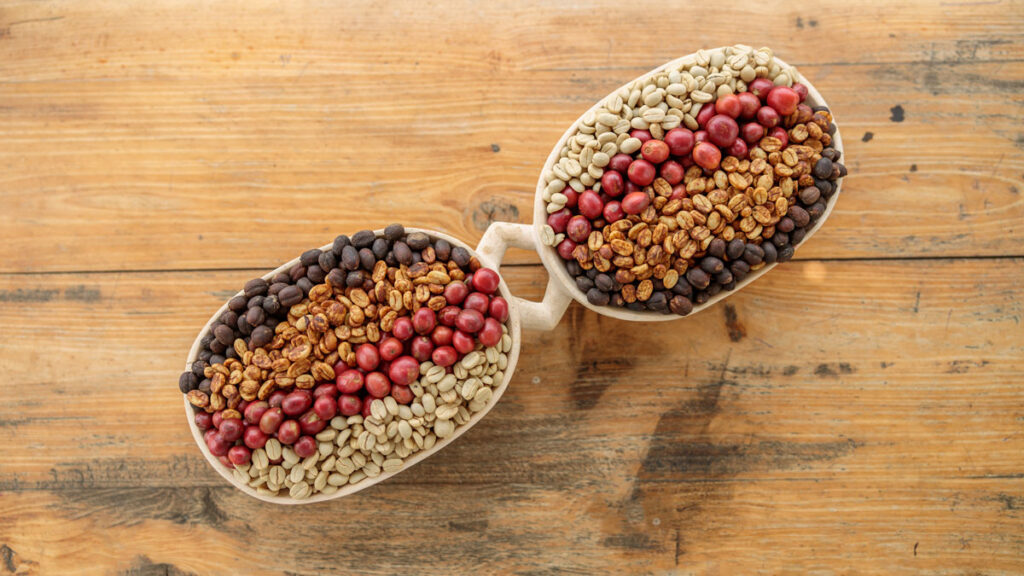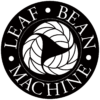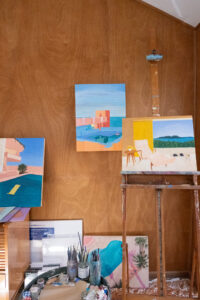Welcome to Rwanda
Rwanda, also known as ‘the land of a thousand hills,’ is blessed with incredible topography including 5 volcanoes, 23 lakes, countless rivers and a lush green mountainous landscape where specialty coffee (and tea) thrives. If you’re a coffee lover, you’ll want to familiarise yourself with this small yet vibrant country for it holds a delicious story that is waiting to be drunk.
What’s special about specialty Rwanda coffee?
Not only do the ‘thousand hills’ provide a spectacular sight of green mountains, but they also offer high altitudes and moderate temperatures, which are ideal for growing specialty coffee crops. Most notably, these excellent conditions allow for year-round cultivation, where small farms thrive, producing fresh and healthy coffee cherries.
Fun fact #1: 75% of Rwanda’s agricultural production comes from smallholder farmers who focus on producing high-quality specialty crops
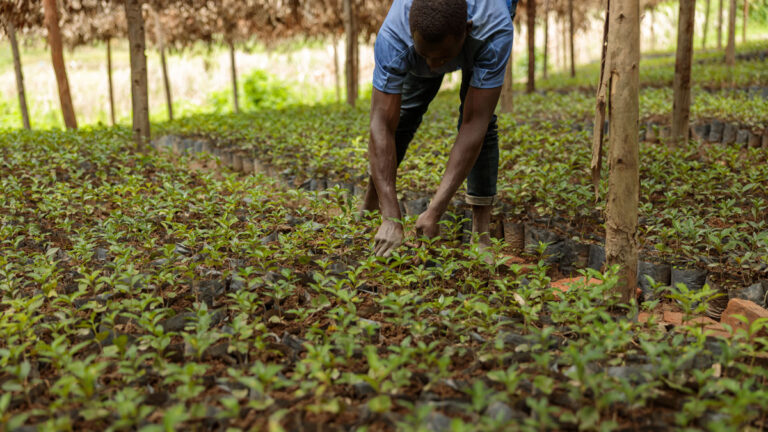
About Rwanda
Rwanda is a small land-locked country that borders the larger nations Democratic Republic of Congo, and East African neighbours, Tanzania, Uganda, and Burundi.
Although a small country, the nation has made quite a name for itself, being renowned globally for its thriving agricultural industry. Coffee, tea, flowers, beans, cassava bananas, Irish potatoes, rice, wheat and sugarcane are just some of Rwanda’s exports. With healthy fertile soils and government investment, the agricultural industry is essential to Rwanda’s economy, employing 85% of the Rwandan workforce.
Since facing the devastating genocide in the mid/late 1990s, Rwanda has rebuilt to become stronger and more resilient than ever. Despite a challenging economic environment with COVID, the impact of climate change and headwinds from the war in Ukraine, Rwanda’s real GDP grew by 8.2% in 2022. Nothing is getting in the way of Rwanda’s growth!
Rwanda enter the specialty coffee market
Compared to other coffee countries such as Panama, Ethiopia or Indonesia—Rwanda has only recently entered the coffee world. The government recognised the economic potential of growing coffee to boost the agricultural industry and introduced the National Coffee Strategy in the 21st century. The National Coffee Strategy was to build capacity and skills among coffee growers and workers, improve extension services, strengthen and support producer cooperatives, promote the construction of coffee-washing stations, replant older tree stock, improve quality control throughout the industry and develop a Rwandan brand identity. And long story short, it was a success!
This Strategy shifted Rwanda from commodity-grade coffee to specialty coffee, where premium washed Arabica coffees were to be prioritised over the cheaper Robusta beans. The push was a win-win for everyone. It was better for Rwanda as they were able to enter the specialty coffee market’s stable prices and higher premiums. And, it was a win for consumers who could now enjoy the sheer freshness that a cup of specialty Rwanda brews.
Today, there are close to half a million small coffee farms in Rwanda with coffee being the fourth largest export for the country. Now that’s grounds for celebrations!
Coffee growing in Rwanda
Blessed with high elevations between 1220 and 2000 metres above sea level (MASL), the coffee crops are treated to cool temperatures to allow for longer maturation. These high elevations produce fuller and richer beans with a superior body and aroma when brewed.
The main coffee varietal found in Rwanda is the Arabica Bourbon varietal, which makes up approximately 95% of coffee crops. Bourbon coffee plants are known for producing high-quality coffee beans with a sweet, fruity flavour and a floral aroma. Rwanda’s coffee industry has gained recognition over the last decade for its specialty coffee, and the Bourbon varietal plays a significant role in the country’s coffee production.
Most of Rwanda’s specialty coffee is washed processed. Due to the government’s investment in washing stations (more than 300 across the country) and relevant washing training, the quantity and quality of washed coffee has dramatically increased. Farmers in Rwanda are producing exceptional washed beans that retain the glorious flavours unique to the region.
Fun fact #2: Rwanda’s coffee is grown on the slopes of volcanoes in the country’s northern and western regions. Volcanic soil is great for coffee growing, formed from the erosion and weathering of volcanic rocks, which release nutrients such as nitrogen, phosphorus, and potassium into the soil. These nutrients help coffee plants to develop deep roots, resist pests and diseases, and produce high-quality beans.
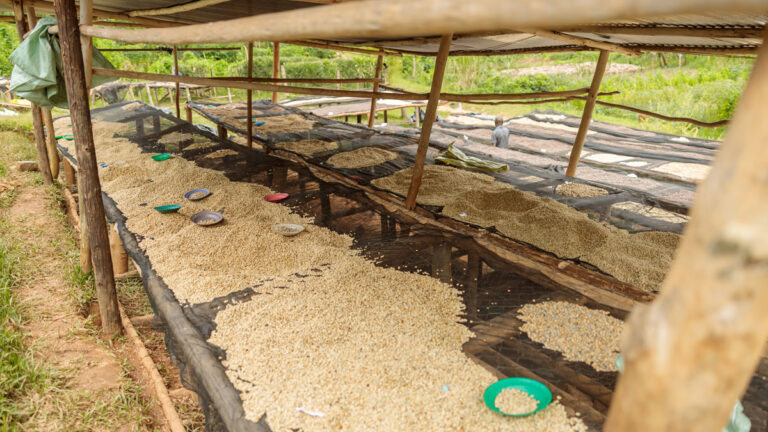
A cup of Rwanda coffee
Rwanda proudly held its first Cup Of Excellence in 2008 and since, has found another level of finesse and confidence in the specialty coffee world, with countries near and far begging for a cup of their Bourbon varietals.
Rwanda coffee can differ from one cup to the next, depending on the farm it was grown in and the special techniques of the growers. A cup of Rwanda has been described as caramell-y and sweet, citrus-y, chocolate-y or even wine-y. Although wildly varying, with most of the coffee beans being wash processed, you can rest assured you will be poured a clean, light and refreshing cup when you order a Rwanda… especially when roasted by us 😉
Where to buy Rwanda coffee beans
Although we wish we could always enjoy a Rwanda coffee, unfortunately it is a seasonal product (harvest months March – June) and will only appear on our shelves when the season arises! Keep an eye out on our socials and website for us to announce the next Rwanda coffee… it could be sooner than you think!
*Update: RWANDA NOW AVAILABLE click here to discover this delicious drop. Roasted for filter, we recommend pouring this one in your v60 or enjoying in your drip coffee maker. Happy brewing!
